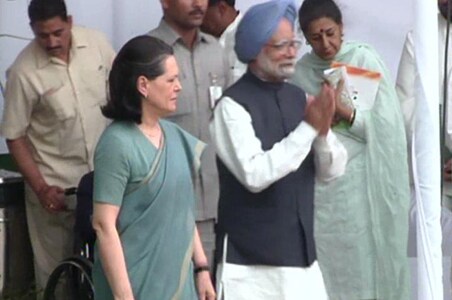
New Delhi:
In and out of the Parliament for 13 years, the historic Women's Reservation Bill may soon become law. At least the UPA government wants it passed in Rajya Sabha by March 8 - as a gift to the country on International Women's Day.
The Congress and the BJP have issued a whip to MPs to vote in its favour, and the Left is backing the bill as well.
Apart from reserving 33 per cent MP and MLA seats for women, it's a bill of many hopes and promises for many in politics.
All India Congress Secretary Alka Lamba came into politics 16 years ago. Her first success was winning Delhi University elections. Since then she has been waiting for a break.
"The passing of this bill should help women like me who do not have any political backing, no influential background, like most women in the Parliament have," said Alka.
In recent general elections many women have become MPs; almost all from political families have been given seats that were family strongholds for years.
Alka too was given an opportunity but against a heavyweight like Madan Lal Khurana in his bastion. Put up as the fall guy, she obviously lost.
"The first battle is with your home. You have to convince them that you are capable of doing things. Second battle is with the society. You have to prove it to them that you can do something. Then keep proving it so the pressure is immense. The third is about opportunities, and you don't get them easy," said Alka.
Alka is not rich, she has no political godfather. And she is raising his 14-year-old son as a single mother.
This is far from how JD(U) president Sharad Yadav once described city women in politics - baal kati aurat who do not understand the pulse of India.
In this bill Alka sees a chance to dash such rigid biases and get more women a bigger say in politics.
With women at the highest offices in India, this is perhaps a symbolic time for the Women's Reservation Bill to be passed. But the real challenge would be - will the male politicians continue to rule by proxy, or will the other half of this population finally assert their long-pending right.
The Congress and the BJP have issued a whip to MPs to vote in its favour, and the Left is backing the bill as well.
Apart from reserving 33 per cent MP and MLA seats for women, it's a bill of many hopes and promises for many in politics.
All India Congress Secretary Alka Lamba came into politics 16 years ago. Her first success was winning Delhi University elections. Since then she has been waiting for a break.
"The passing of this bill should help women like me who do not have any political backing, no influential background, like most women in the Parliament have," said Alka.
In recent general elections many women have become MPs; almost all from political families have been given seats that were family strongholds for years.
Alka too was given an opportunity but against a heavyweight like Madan Lal Khurana in his bastion. Put up as the fall guy, she obviously lost.
"The first battle is with your home. You have to convince them that you are capable of doing things. Second battle is with the society. You have to prove it to them that you can do something. Then keep proving it so the pressure is immense. The third is about opportunities, and you don't get them easy," said Alka.
Alka is not rich, she has no political godfather. And she is raising his 14-year-old son as a single mother.
This is far from how JD(U) president Sharad Yadav once described city women in politics - baal kati aurat who do not understand the pulse of India.
In this bill Alka sees a chance to dash such rigid biases and get more women a bigger say in politics.
With women at the highest offices in India, this is perhaps a symbolic time for the Women's Reservation Bill to be passed. But the real challenge would be - will the male politicians continue to rule by proxy, or will the other half of this population finally assert their long-pending right.
Track Latest News Live on NDTV.com and get news updates from India and around the world

